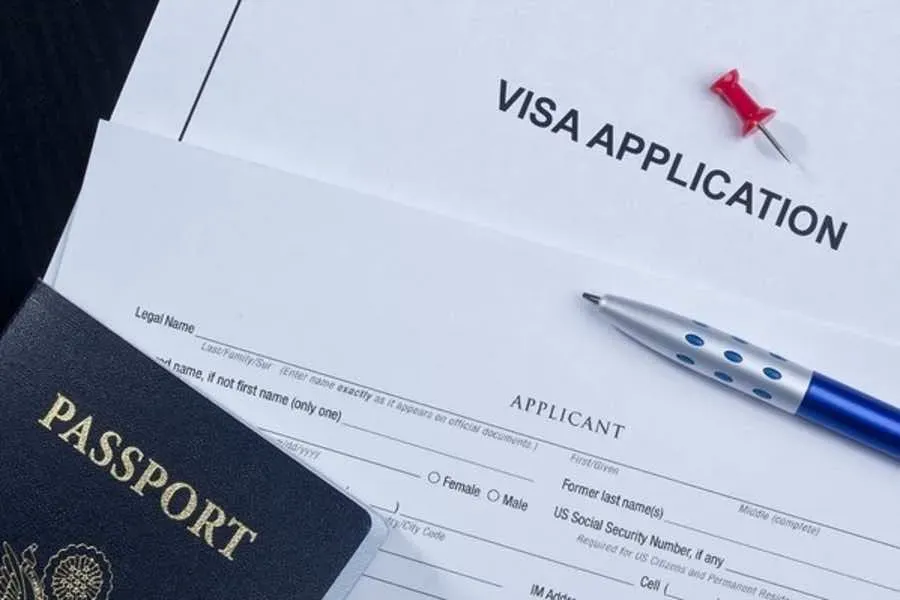Travel enthusiasts and travellers from the UK eyeing Southeast Asia will find Vietnam an increasingly attractive destination in 2025, thanks to evolving visa policies and diplomatic strides. The UK Vietnam visa free 2025 entry requirements mark a significant milestone in fostering ease of travel, allowing more spontaneous trips and fostering cultural exchanges. As the visa exemption policy nears implementation, understanding the precise conditions, scope, and potential limitations becomes vital for British tourists planning their voyages. This article navigates through the crucial aspects of visa-free travel, shedding light on what UK citizens must know to make the most of their journeys to Vietnam in 2025 and beyond.
Table of Contents
UK Citizens and Vietnam Visa-Free Travel: An Overview for 2025

Starting in 2025, UK nationals can enjoy a hassle-free entry to Vietnam under new visa exemption arrangements designed to strengthen tourism and bilateral relations. This development is part of Vietnam’s broader diplomatic strategy to attract more visitors from the UK, bolstering its economy and cultural exchanges. The move not only simplifies the entry process but also enhances Vietnam’s reputation as an inviting destination for leisure, business, and cultural tourism, reflecting its commitment to open and accessible borders for select nationalities.
However, while the policy appears straightforward, several nuanced criteria underlie UK Vietnam visa free 2025 entry requirements. These include specific travel duration limits, valid passports, and adherence to arrival and departure procedures. For UK citizens, understanding these conditions is essential to avoid unintentional violations, which could affect future travel and visa eligibility. The overview of these policies demonstrates Vietnam’s adaptive approach to international tourism, balancing ease of entry with regulatory safeguards. It’s a welcome change for UK travellers seeking effortless exploration of Vietnam’s vibrant cities, scenic landscapes, and rich heritage.
Vietnam’s Visa Exemption Policy for UK Passport Holders: Validity and Scope (2025)

Vietnam’s visa exemption policy for UK passport holders is set to become more streamlined in 2025, allowing eligible travellers to visit without securing a visa beforehand. The scope is primarily limited to tourism, visiting friends, or short business trips, emphasizing Vietnam’s focus on tourism growth. This exemption typically applies to visits lasting up to a specified number of days—most commonly 45 days—making it ideal for short-term travel and quick sightseeing excursions.
This policy’s validity is influenced by diplomatic negotiations, regional stability, and Vietnam’s strategy to promote tourism during the post-pandemic recovery phase. While the scope is currently limited to specific categories and durations, it reflects a positive trend toward more liberalized travel policies. UK citizens should note that these exemptions do not automatically extend to extended stays, work, or study-related visits—requiring separate visas or permit applications. As Vietnam commits to an open-door policy for valued allies like the UK, staying informed about the specific entry requirements will ensure seamless travel and maximum enjoyment of the destination.
Entry Requirements for Visa-Free Travel to Vietnam from the UK (2025)
To qualify for visa-free entry to Vietnam in 2025, UK citizens must meet certain basic yet crucial requirements. First and foremost, a valid UK passport with at least six months of validity beyond the intended departure date is essential. This ensures smooth immigration processing and aligns with international travel standards. Additionally, travellers need evidence of onward or return tickets, as Vietnam’s immigration authorities keep a close check to prevent overstaying or illegal work.
Beyond documents, travellers should be prepared for possible health and safety checks, including proof of sufficient funds and accommodation details. The importance of adherence to the 45-day stay limit cannot be overstated, as overstays may incur fines, deportation, or entry bans. Moreover, travelers should review the latest travel advisories and official guidance before departure, as policies may be subject to adjustments throughout 2025. Knowing these entry requirements minimizes risks and ensures a smooth start to an unforgettable Vietnamese adventure.
Decoding the 45-Day Visit: Maximum Stay Allowed Under the Vietnam Visa Exemption
The 45-day maximum stay under Vietnam’s visa exemption policy for UK citizens strikes a perfect balance between travel flexibility and regulatory control. This duration allows visitors ample time to explore major cities like Hanoi, Ho Chi Minh City, and Da Nang, as well as venture into scenic regions like Ha Long Bay and the Mekong Delta. A key aspect to understand is that the 45 days are cumulative—if travelers leave Vietnam and re-enter within the exemption period, they must adhere to the same stay limit unless they secure a different visa.
This stay limitation also influences planning and itinerary design, encouraging travellers to prioritize their must-see attractions. From a strategic perspective, Vietnam’s approach demonstrates an understanding of modern tourist behaviors—favoring short, immersive experiences over lengthy stays. It’s important for UK visitors to track their time carefully, as exceeding the 45-day limit can lead to penalties and future travel restrictions. Embracing this maximum stay allows for fulfilling trips while respecting national immigration policies, ultimately fostering responsible tourism that benefits both visitors and hosts.
Essential Travel Documents for UK Citizens Entering Vietnam Without a Visa in 2025
While obtaining a visa is unnecessary for qualifying UK travellers in 2025 due to the visa exemption policy, the importance of proper documentation remains paramount. The cornerstone is a valid UK passport with at least six months’ validity—an essential safeguard during international travel. Additionally, travelers should carry printed confirmation of return or onward tickets, as Vietnamese authorities often verify this at entry points to prevent overstays.
It’s also recommended to maintain proof of accommodation bookings, travel insurance, and sufficient funds to support your stay. In some cases, border officers may request contact details or letter of invitation from hosts or hotels. Digital copies or scanned versions of these documents are advisable in case of emergencies. Having all the necessary documents organized ensures a hassle-free experience, allowing tourists to focus on enjoying their journey and immersing themselves in Vietnam’s unique culture.

Extending Your Stay: Options for UK Citizens Beyond the 45-Day Visa-Free Period
For UK travellers who wish to explore Vietnam beyond the 45-day limit, various options are available to extend their stay legally. One common approach is to apply for a visa extension through Vietnam’s Immigration Department—an option that, if granted, can prolong the stay for an additional 30 to 60 days. This process requires submitting the necessary documents, paying applicable fees, and adhering to official procedures to avoid penalties.
Alternatively, travelers can exit Vietnam to another country, such as Cambodia or Thailand, and re-enter as part of a new 45-day visa-free period. However, this method involves logistical planning and understanding visa policies of neighbouring countries. It’s worth noting that frequent re-entries may raise suspicion with immigration officers and could影响 future visa applications. Consulting with Vietnamese immigration authorities or legal experts can help navigate this process efficiently, ensuring legal compliance while satisfying the desire for extended exploration in Vietnam.
Potential Changes to Vietnam’s Visa Exemption Policy: Staying Informed for 2025 Travel
Ingress policies worldwide are subject to periodic updates based on geopolitical, health, and economic considerations. For UK citizens eyeing Vietnam in 2025, remaining informed about potential changes to the visa exemption policy is crucial. Vietnam’s government may adjust parameters such as the maximum duration, eligible categories, or entry requirements based on evolving circumstances—especially considering regional stability and diplomatic relations.
Travelers should regularly monitor official sources like Vietnam’s immigration department, embassy websites, and travel advisories. Subscribing to notifications or consulting with travel agents specializing in Vietnam itineraries can also provide real-time insights. Flexibility and preparedness are the best strategies, allowing travellers to adapt their plans proactively. Such vigilance ensures that the initial excitement of visa-free travel in 2025 remains a seamless, enjoyable experience from start to finish, without surprises or setbacks.
FAQ: Visa-Free Travel to Vietnam from the UK (2025) – A Comprehensive Guide
Many UK travellers have questions about the upcoming visa policies for Vietnam in 2025. Common queries include eligibility criteria, documentation requirements, how to handle overstays, and the process for extended visits. It’s reassuring to find that Vietnam’s evolving policies aim to simplify entry, but staying compliant remains a top priority to avoid unnecessary complications.
For example, travelers often wonder if their passports will need additional pages or if certain vaccinations are necessary. While Vietnam does not currently mandate specific vaccines for short-term visitors, health protocols may change, especially in light of ongoing global health concerns. It’s also advisable to understand the procedures for re-entry or re-extension if more time is needed, and consult official sources for the most accurate, up-to-date information. Essentially, preparation, awareness, and adherence to the specified requirements form the foundation of an enjoyable and stress-free journey.
Conclusion
As 2025 approaches, the UK Vietnam visa free policy signifies a promising shift towards more accessible and inviting travel regulations, facilitating expeditions for holidaymakers, business travelers, and cultural explorers from the UK. The UK Vietnam visa free 2025 entry requirements emphasize the importance of valid documentation, adherence to stay limits, and staying informed about potential policy updates. This development not only enhances Vietnam’s appeal as a vibrant, must-visit destination but also reflects a broader commitment to fostering international tourism and people-to-people connections. Whether you’re planning a brief getaway or an extended adventure, understanding these requirements ensures your journey will be smooth, enjoyable, and full of memorable experiences in one of Southeast Asia’s most captivating countries.

